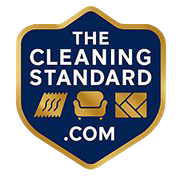Mikey P
Administrator
- Joined
- Oct 6, 2006
- Messages
- 117,120
I was assigned these two sections to edit before next Wednesday. With my trip to San Diego starting tomorrow I wont be able to focus much on this so I would greatly appreciate some input from those you you who give a hoot.
Keeping in mind that the re-writing of the standards as a whole, is to make them easier to understand for the "average" cleaning technician, especially those that are ESL.
Cut and paste into a new post with any edits that you feel would add to their "readability", please make your changes in bold
2.6 Water Hardness
Minerals dissolved in water will affect how well various cleaning products work. Cleaners should appreciate the value of cleaning with soft water.
Water in most locales contains various minerals, dissolved in slightly acidic rainwater as it filters through the soil. Water that is rich in salts of calcium, magnesium, or iron is called hard water. Soft water, on the other hand, is virtually free of these minerals. These minerals in hard water can combine with cleaning agents, especially the anionic type, and adversely affect cleaning ability.
Well-built cleaning agents contain materials called sequestering agents that can soften water to counteract water hardness, but that at times may not be enough. There are surfactants that are not adversely affected in their cleaning efficacy by hardness in water.
In addition, calcium salts are usually present as calcium carbonate, especially when water is heated. This forms scale on heat transfer surfaces and reduces their efficiency. Unfortunately, some sequestering agents that soften the water for detergent hardness can enhance scale formation on cleaning equipment.
The use of naturally soft water or softened water is recommended to provide increased cleaning performance from the cleaning agents used and to reduce potential for scale and other forms of damage to the equipment.
--------------------------------------------------------
2.8 Odors
The presence of increased humidity resulting due to cleaning increase our perception of odors.Deodorants or odor counteractants are often employed to treat unpleasant odors. There are four deodorizing principles: remove the source (as practical); clean off significant residue, recreate the conditions of penetration using an appropriate odor counteractant, and seal as necessary. Deodorization specialists should be consulted if odors persist after normal cleaning.
Keeping in mind that the re-writing of the standards as a whole, is to make them easier to understand for the "average" cleaning technician, especially those that are ESL.
Cut and paste into a new post with any edits that you feel would add to their "readability", please make your changes in bold
2.6 Water Hardness
Minerals dissolved in water will affect how well various cleaning products work. Cleaners should appreciate the value of cleaning with soft water.
Water in most locales contains various minerals, dissolved in slightly acidic rainwater as it filters through the soil. Water that is rich in salts of calcium, magnesium, or iron is called hard water. Soft water, on the other hand, is virtually free of these minerals. These minerals in hard water can combine with cleaning agents, especially the anionic type, and adversely affect cleaning ability.
Well-built cleaning agents contain materials called sequestering agents that can soften water to counteract water hardness, but that at times may not be enough. There are surfactants that are not adversely affected in their cleaning efficacy by hardness in water.
In addition, calcium salts are usually present as calcium carbonate, especially when water is heated. This forms scale on heat transfer surfaces and reduces their efficiency. Unfortunately, some sequestering agents that soften the water for detergent hardness can enhance scale formation on cleaning equipment.
The use of naturally soft water or softened water is recommended to provide increased cleaning performance from the cleaning agents used and to reduce potential for scale and other forms of damage to the equipment.
--------------------------------------------------------
2.8 Odors
The presence of increased humidity resulting due to cleaning increase our perception of odors.Deodorants or odor counteractants are often employed to treat unpleasant odors. There are four deodorizing principles: remove the source (as practical); clean off significant residue, recreate the conditions of penetration using an appropriate odor counteractant, and seal as necessary. Deodorization specialists should be consulted if odors persist after normal cleaning.
Last edited:


